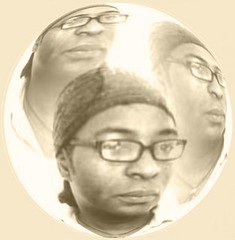Labels: The Coffee House ...
Thursday, June 07, 2007
Cat-007 [Big Boss Cuts] Take-5 <☆>
The Coffee House ...
Abyssinia and Arabia were the original homes of the coffee shrub and by the 15th century pilgrims to Mecca regularly drank an infusion of the roasted coffee bean to prevent drowsiness during the long religious services. From Arabia the practice quickly passed to Constantinople (Istanbul), Venice and the main European cities.
Soon after the first coffee-house was established in London, in 1652, they became such an important part of the fabric of the social and political life of England that Charles II attempted to supress them, suggesting they were "seminaries of sedition". In Paris, as well, coffee-houses became very popular and our alternative name for a restaurant - cafe - is in fact the French word for coffee or coffee-house.
Until the end of the 17th century all coffee came from Arabia, being shipped from Mocha, the main port of Yemen and 'Mocha' is the name still applied to all Arabian style coffee. Coffee cultivation then spread to Java in the East Indies and throughout the tropics. Vast plantations soon sprang up in Brazil and the West Indies.
By the late 18th century London had become a city of 5,000 coffee-houses. These had proliferated with the dramatic increase in coffee consumption which had been actively promoted by the East India Company. Coffee-houses soon established themselves as centres of social activity by offering news and information as well as becoming lost-property offices, business addresses, doctor's consulting rooms, matrimonial agencies, Masonic lodges, auction houses and, sometimes, 'Temples of Venus' when the signboard featured a woman's arm or hand holding a coffee pot.
Most coffee-houses also offered chocolate, wine and brandy, these served from a small bar in one corner of a candle-lit room which was fairly basic, having a bare wooden floor and tables with benches of Windsor chairs. Some also provided booths or snugs for more intirmate conversations. Certain venues attracted particular clienteles, including scholars and wits, actors, newspapermen or politicians. Some offered facilities for games - chess, draughts or blackgammon - others hasty-pudding eating contests and gambling. Booksellers frequented coffee-houses in Paternoster Row, gentlemen of fashion those near Pall Mall, with Whigs favouring 'St. James' and Tories the 'Cocoa-Tree'. Authors gravitated to Covent Garden and Temple Bar. Many even preferred them to lodgings, inspiring the expression "He lodges at home but lives at the coffee-house".
In the more eclectic establishments where gentlemen rubbed shoulders with merchants and the up-and-coming, political debate frequently occurred. At that time England was awash with new ideas from abroad, especially France, whose culture was giving shape and texture to 'The Enlightenment'. The opinions of Diderot and Rousseau were widely discussed as well as another well known French philosopher, which gave rise to the expression 'The Age of Voltaire'...

